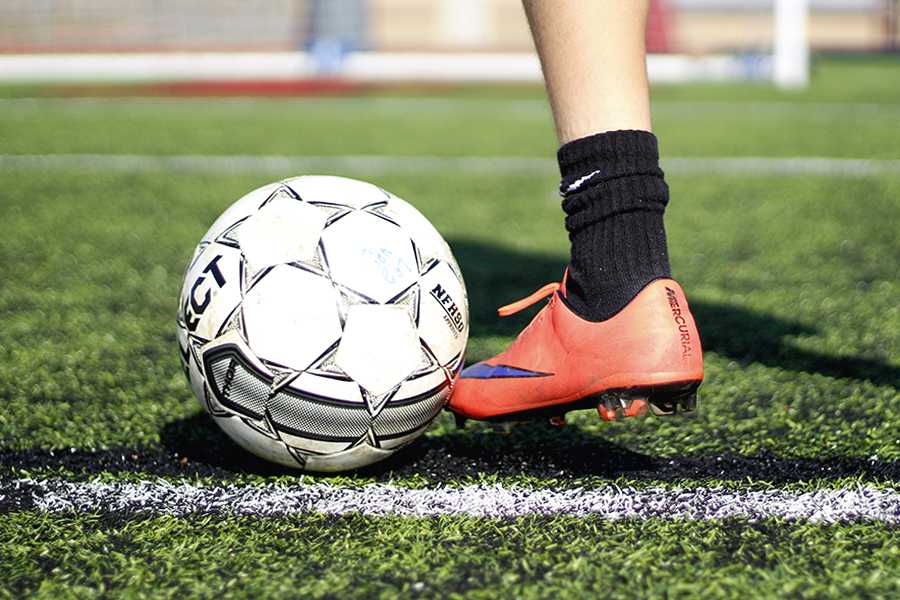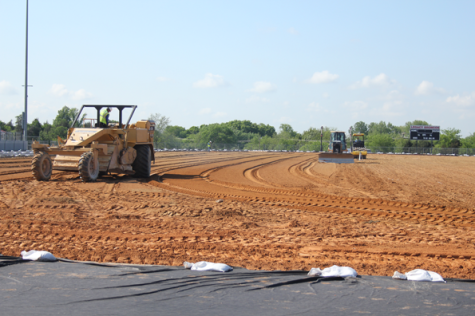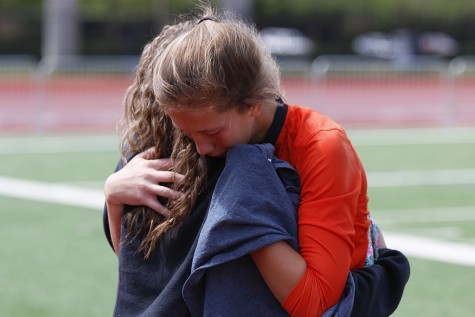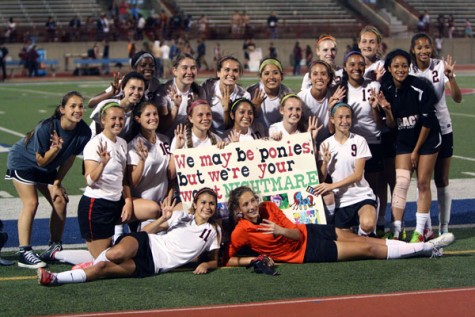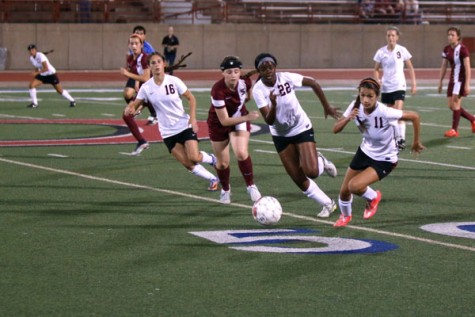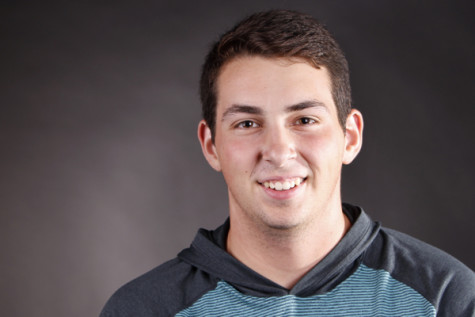Senior Brittany Holt, goalkeeper for the girls’ soccer team, dives for the ball and takes a hard fall to the abrasive turf. The save was successful but she had to deal with a pain in her ear throughout the remainder of the game. Over all the excitement of the game, she forgot about the pain until later that night. Holt was soon rushed to the doctor’s office to find that a rubber turf pellet had been lodged in her ear.
Among other students, Holt has felt the new turf field implemented in 2014 at Legacy holds some health concerns, and now major media sources are reporting links to cancer.
“I think they got the new turf, one, to show that we are proud of our school and what we are accomplishing,” Holt said. “And, two, to allow us to have like home field advantage and different things like that instead of it being predictable.”
One of the biggest concerns about turf fields are the tiny, ground up, rubber pellets made from recycled tires. Some tires and paint used on the turf can contain metals like lead which continue to be found in turf fields and hold chemicals like toxic polycyclic aromatic hydrocarbons. These have been proven to lead to tumors in the lungs. The lead count wouldn’t be enough to hurt anyone, but after time turf fields start to crumble and the lead can turn to dust, creating the possibility of lead inhalation.
Maybe they’re not putting two and two together they’re just blaming it on something they are not scientifically proving that it was turf.
— Brittany Holt
“I don’t feel like science is true. I feel like that there are other things that are causing [the cancer] not just turf,” Holt said. “There are a lot of benefits. You [are] constantly playing [on] it, you learn how the turf is so you know where to place your balls, you know how to dive on it and you learn how to run on it, but by constantly playing on it, you learn the advantages.”
Parents are afraid of players possibly inhaling the chemicals released from the rubber on very hot days. With this being said, some companies have found alternatives like ground up cork and coconut husks to help lower the risk of any possible health concerns. But to help recycle more tires that are no longer use they continue use rubber pellets.
“My mom doesn’t mind it since I’m a goalkeeper and I’m diving all the time. [She] doesn’t mind it as long as I’m careful,” Holt said. “I’m not really worried about the plastic. I believe there could be other factors they’re not paying attention to since we’re out in the sun all the time. There [are] other factors that lead to cancer and maybe they’re not putting two and two together they’re just blaming it on something they are not scientifically proving that it was turf.”
After countless questioning, The Environmental Protection Agency would not comment on if turf remains safe enough for students to play on. Some athletes in Texas have shown signs of developing leukemia, testicular, and prostate cancer, causing some worried parents to take action.
Turf proves to be a good alternative to using regular grass. Athletic Director Debbie Weems found the turf prevents players from dealing with water restrictions and the problems that grass fields bring. For example, limiting the time of day you can water the field, so we can save water in the dry hot summers. Also, the turf prevents players from getting hurt on the uneven ground that grass fields have.
“I do love a grass field for its looks, and it’s old school,” Weems said. “However, because of the number of teams we have a grass field would not hold its look for very long and we would not have the manpower to keep it up.”
The fields prove to be a lot easier to maintain and have the capability to last much longer than your traditional grass fields which need to be mowed, fertilized, and watered constantly. However, there will always be drawbacks. A study conducted at Brigham Young University found that turf reaches 30 degrees hotter than a natural grass field. Even after being cooled down by water, turf showed to heat faster than watering natural grass. With turf being hotter, players tend to sweat more and have a higher risk of getting a heat stroke or even passing out.
I’m willing to take the risk no matter what. It’s my sport. I love it, and I’m passionate about it. I would do anything to play it.
— Brittany Holt
“When we do push-ups or planks on the field, we can see the heat radiating off the turf in the distance,” Wade Romaguera, 12, said. “It’s like an oven.”
In October 2011, a study conducted by the National Football League Injury and Safety Panel, showed an increase of ACL sprains of 67 percent, 22 percent increase in knee sprains when playing on turf, rather than grass fields.
With more than 11,000 turf fields used all over the country, it’s not safe to say all of them are safe or not. Most fields, being made by different companies with different materials, could have the possibility of giving players any health problems.
“Technology has now improved turf to be safer, playable, longer lasting, and performance enhancing,” Hellas Construction said.
Hellas Construction controls the entire supply chain for sports field. They implant turf, track and tennis courts. They make sure their field are 100% safe and environmentally friendly. They make sure that the fields are done right the first time even though they are back with a warranty Hellas Construction wants to make sure it done the right way the first time so players can get the best experience they can on the field.
“I don’t mind [playing on the turf],” Holt said. “I’m willing to take the risk no matter what. It’s my sport. I love it, and I’m passionate about it. I would do anything to play it.”


